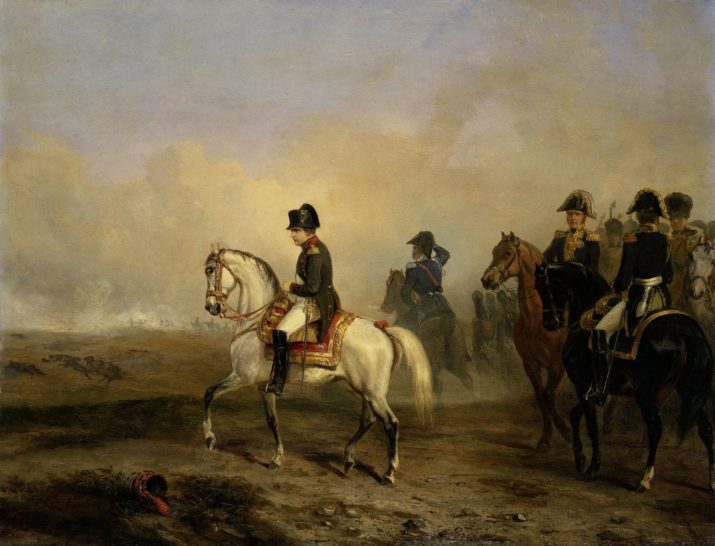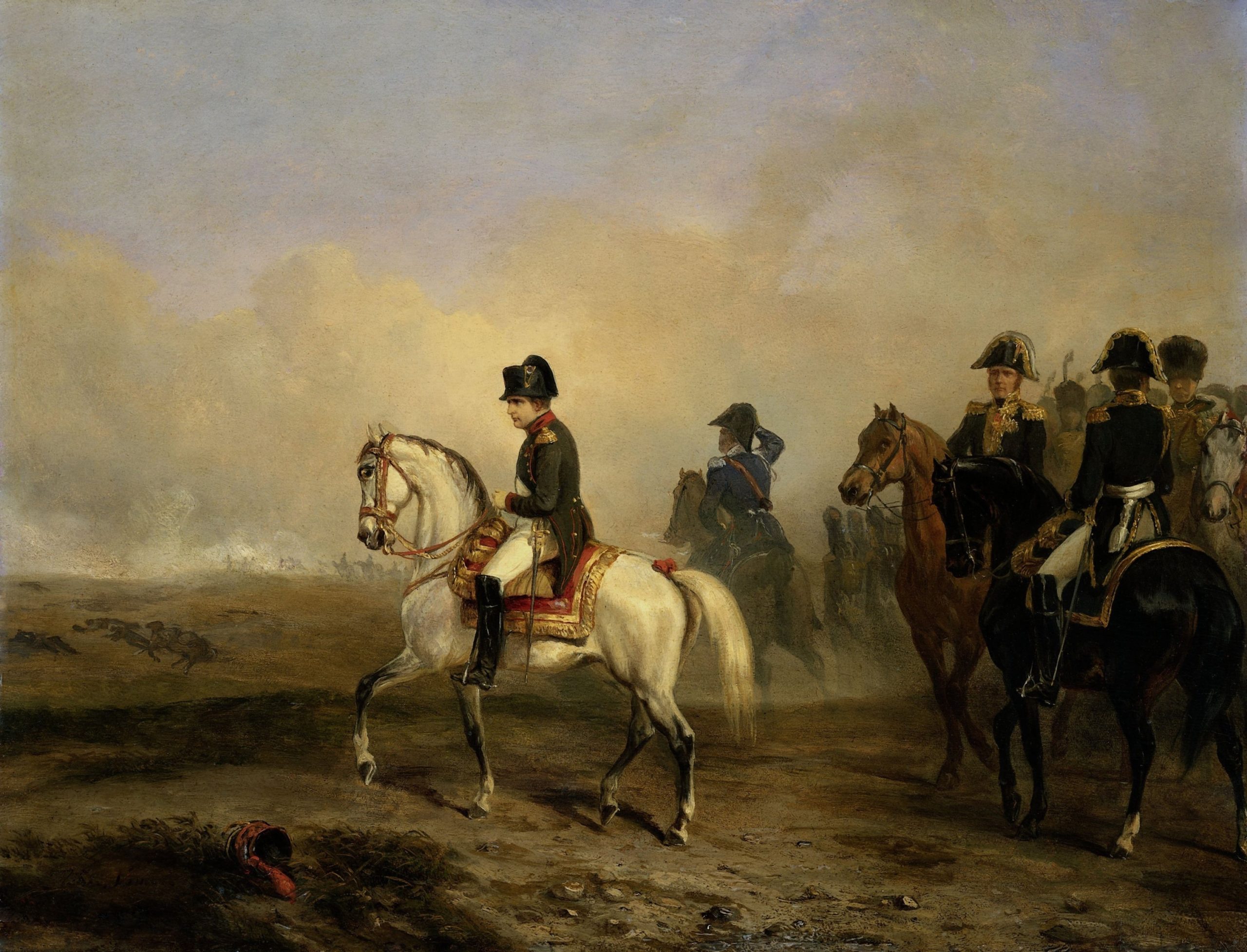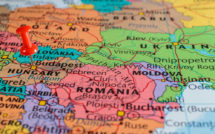
Europe: Imperial, Colonial, Transnational? An Introduction to Modern European History

This is part of our Campus Spotlight on Europa-Universität Viadrina.
This course is an introductory seminar in modern European history for the master programs “European Studies” and “European Cultural History”
Course description
“Europe” and “nation” are deeply connected concepts. In historiography, conceptions seeing the seventeenth century as birth moment both for the nation-state and the idea of modern Europe are utterly widespread. Historians who start from this assumption usually deem the establishment of national forms of statehood throughout the continent as the ultimate goal for Europe’s historical path. Even the last fifty years of European integration could not really shake the foundations of the idea of nation as the basic unit for the European order. What is more, the prominence given to nation-states in historiography has often resulted in an underexposure of the crucial role that transnational empires played in modern European history. In fact, before the First World War, most Eastern, Central, and South-Eastern Europeans were subjects under imperial rule; and at least until the end of the Second World War, most European states had a deeply imperial character and cultivated both concrete policies and discourses of colonization and territorial expansion to the detriment of overseas populations as well as of their European neighbors. Through approaches derived from transnational history, new imperial history, global history, and post-colonial studies, this course traces an imperial and transnational history of modern Europe in the long nineteenth (and short twentieth) century.
The seminar is structured in three parts: in the first section, two introductory sessions make students familiar with concepts such as nation-state, empire, colonialism, modernity, entanglements, and othering. This theoretical frame enables students to critically question the teleological master narrative of Europe as a system of nations and focuses instead on transnational/transcontinental cross-border interactions and on the creation of asymmetric power relationships. The next nine sessions, in the second section, deal with single European empires in the last two centuries. The first is the French empire under Napoleon: Napoleon´s project was not only the first imperial attempt of the modern era to unify the whole European continent, but also a crucial moment to define the modern concepts of empire and nation. The following five sessions are dedicated to two paradigmatic overseas empires, the Spanish and the British, and to three land empires, the Habsburg, the Russian, and the Ottoman. By comparing them, students learn about different imperial self-understanding, strategies of dominion, narratives of modernization, and about the dynamics of discursive and practical production of imperial and colonial difference. Moreover, comparison enables them to develop a nuanced understanding of imperialism and colonialism as multifaceted phenomena both outside and within Europe. In the last three sessions of the second part of the seminar, we turn to Germany, Italy, and Poland. Germany and Italy are two examples of “delayed” nation-states with an often forgotten imperial/colonial character. Finally, the case of the Polish imperial aspirations towards the Ukrainians even before the First World War shows how even societies without a nation-state could develop colonial/imperial discourses and practices. In the last part of the course―the last two sessions―we go back to more theoretical reflections and discuss the imperial character of Europe as a concept itself and how a European history taking into account empires and colonization should be written.
Topics outline and readings
Section 1
Session 1) Empires: Defining a field of historiographical research.
Burbank, Jane, and Frederick Cooper. Empires in World History: Power and the Politics of Difference. Princeton: Princeton University Press, 2010, pp. 1–22.
Osterhammel, Jürgen. Die Verwandlung der Welt: Eine Geschichte des 19. Jahrhunderts. Bonn: Bpb, 2010, pp. 603–623.
Session 2) Theories of the (post-)colonial.
Reinhard, Wolfgang. “Kolonialgeschichtliche Probleme und kolonialhistorische Konzepte.” In Kolonialgeschichten: Regionale Perspektiven auf ein globales Phänomen. Edited by Claudia Kraft, Alf Lüdtke and Jürgen Martschukat. Frankfurt am Main: Campus-Verl., 2010, pp. 67–91.
Stoler, Ann Laura, and Frederick Cooper. “Between Metropole and Colony: Rethinking a Research Agenda.” In Tensions of Empire: Colonial Cultures in a Bourgeois World. Edited by Frederick Cooper and Ann L. Stoler. Berkeley: University of California Press, 1997, pp. 1–56.
Section 2
Session 3) France under Napoleon: the first modern nation, the first modern empire?
Woolf, Stuart. Napoleon´s Integration of Europe. London, New York: Routledge, 1991, pp. 8–32.
Fontana, Biancamaria. “The Napoleonic Empire and the Europe of Nations.” In The Idea of Europe: From Antiquity to the European Union. Edited by Anthony Pagden. Washington, DC: Woodrow Wilson Center Press, 2006, pp. 116–128.
Session 4) West European overseas empires between rise and decline: The Spanish Empire
Kumar, Krishan. Visions of Empire: How five Imperial Regimes shaped the World. Princeton: Princeton University Press, 2017, pp. 147–161.
Schmidt-Nowara, Christopher. The Conquest of History: Spanish Colonialism and National Histories in the nineteenth century. Pittsburgh, Pa.: University of Pittsburgh Press, 2006, pp. 19–52.
Session 5) West European overseas empires between rise and decline: The British Empire.
Kumar, Krishan. Visions of Empire: How five Imperial Regimes shaped the World. Princeton: Princeton University Press, 2017, pp. 310–329.
Armitage, David. The Ideological Origins of the British Empire. Cambridge: Cambridge University Press, 2009, pp. 1–23.
Session 6) Central-South-East-European land empires: The Habsburg Empire.
Kumar, Krishan. Visions of Empire: How five Imperial Regimes shaped the World. Princeton: Princeton University Press, 2017, pp. 174–185.
Feichtinger, Johannes. “Habsburg (post)-colonial: Anmerkungen zur Inneren Kolonisierung in Zentraleuropa.” In Habsburg postcolonial: Machtstrukturen und kollektives Gedächtnis. Edited by Johannes Feichtinger. Innsbruck: StudienVerl, 2003, pp. 13–32.
Wendland, Anna Weronika. “Imperiale, koloniale und postkoloniale Blicke auf die Peripherien des Habsburgerreiches.” In Kolonialgeschichten: Regionale Perspektiven auf ein globales Phänomen. Edited by Claudia Kraft, Alf Lüdtke and Jürgen Martschukat. Frankfurt am Main: Campus-Verl., 2010, pp. 211–235.
Session 7) Central-South-East-European land empires: The Ottoman Empire.
Makdisi, Ussama. “Ottoman Orientalism.” The American Historical Review, 2002, pp. S. 768–796.
Lieven, D. C. B. Empire: The Russian Empire and its Rivals. New Haven, Conn.: Yale University Press, 2001, pp. 128–157.
Session 8) Central-South-East-European land empires: The Russian Empire.
Bassin, Mark. “Geographien imperialer Identität: Russland im 18. und 19. Jahrhundert.” In Kolonialgeschichten: Regionale Perspektiven auf ein globales Phänomen. Edited by Claudia Kraft, Alf Lüdtke and Jürgen Martschukat. Frankfurt am Main: Campus-Verl., 2010, pp. 236–258.
Khalid, Adeeb. “The Soviet Union as an Imperial Formation: a View from Central Asia.” In Imperial Formations. Edited by Ann L. Stoler. Santa Fe, NM: School for Advanced Research Press, 2007, pp. 113–140.
Session 9) Nation-states as colonial empires: The German Empire.
Ther, Philipp. “Deutsche Geschichte als imperiale Geschichte: Polen, slawophone Minderheiten und das Kaiserreich als kontinentales Empire.” In Das Kaiserreich transnational: Deutschland in der Welt 1871-1914. Edited by Sebastian Conrad and Jürgen Osterhammel. Göttingen: Vandenhoeck & Ruprecht, 2004, pp. 129–148.
Conrad, Sebastian. “Doppelte Marginalisierung: Plädoyer für eine transnationale Perspektive auf die deutsche Geschichte.” Geschichte und Gesellschaft 28 (2002), pp. 145–169.
Session 10) Nation-states as colonial empires: Italy and its empire.
Dal Lago, Enrico. “Italian National Unification and the Mezzogiorno: Colonialism in one Country?” In The Shadow of Colonialism on Europe’s Modern Past. Edited by Róisín Healy and Enrico Dal Lago. Basingstoke: Palgrave Macmillan, 2014, pp. 57–72.
Pergher, Roberta. Mussolini’s Nation-Empire: Sovereignty and Settlement in Italy’s Borderlands, 1922-1943. Cambridge: Cambridge University Press, 2018, pp. 1–14 and 243–253.
Session 11) Imperial/colonial aspirations without colonial empire (and also without state): The Polish case.
Rhode, Maria. “Zivilisierungsmissionen und Wissenschaft: Polen kolonial?” Geschichte und Gesellschaft 39, no. 1 (2013), pp. 5–34.
Mick, Christoph. “Colonialism in the Polish Eastern Borderlands 1919-1939.” In The Shadow of Colonialism on Europe’s Modern Past. Edited by Róisín Healy and Enrico Dal Lago. Basingstoke: Palgrave Macmillan, 2014, pp. 126–141.
Section 3
Session 12) Empire after the fall of the empires? The imperial character of Europe and the European Union.
Boatcă, Manuela. “Multiple Europas und die interne Politik der Differenz.” In Globale, multiple und postkoloniale Modernen. Edited by Manuela Boatcă and Willfried Spohn. München: Hampp, 2010, pp. 341–358.
Asbach, Olaf. “Die neuzeitliche Narration ’Europa‘ und ihr imperialer Anspruch.” In SpaceTime of the Imperial. Edited by Holt Meyer, Susanne Rau and Katharina Waldner. Berlin, Boston: De Gruyter Oldenbourg, 2017, pp. 174–203.
Session 13) Europe imperial, Europe transnational? The debate on a transnational imperial European history.
Leonhard, Jörn. “Comparison, Transfer and Entanglement, or: How to Write Modern European History Today?” Journal of Modern European History 14 (2016), pp. 149–163.
“How to Write European History? Statements to Jörn Leonhard by Chr. Conrad, F. Cooper, M. Espagne, J. Kreienbaum and Ph. Ther.” Journal of Modern European History 14, no. 4 (2016), pp. 465–491.
Clara Frysztacka is research assistant at the European-University Viadrina in Frankfurt Oder. She studied modern and contemporary history as well as Eastern European Studies in Milan and Berlin. Her PhD at the University of Siegen focused on the category of historical time and on the forms of temporal self-location of Polish society in modernity at the end of the long nineteenth century. At the European-University Viadrina, she teaches and does research in critical European studies.
Photo: Emperor Napoleon I and his Staff on Horseback, Horace Vernet, c. 1815-50, French oil painting. In the distance is the smoke from a battle of the Napoleonic Wars | Shutterstock
Published on June 3, 2020.




